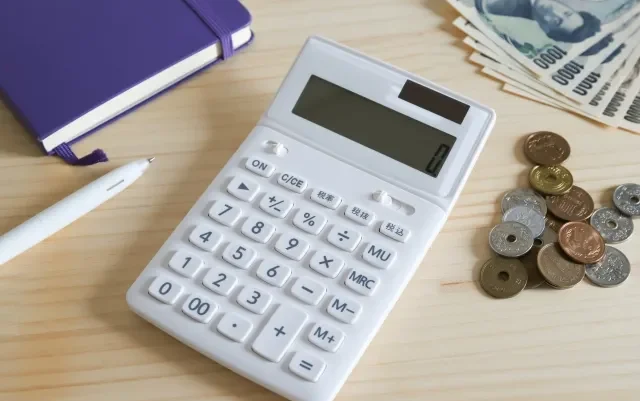Tips for saving money in Japanese life! Learn how to save money when shopping and traveling!

Although central areas of Japan are known for their high cost of living, it is possible to live a fulfilling life while saving money, depending on the ingenuity with which you live. In particular, foreigners who have just started living in Japan or those who visit Japan on vacation may often be at a loss as to how to save money.
Therefore, in this article, we will introduce some money-saving tips for different situations that can be useful when living and traveling in Japan. We will explain tips on how to save money in Japan from various angles, including food, shopping, transportation, and travel expenses. Whether you are about to start living in Japan or are planning a short stay, we hope you will find this article useful.
▼Goandup Picks Click here for recommended articles!
- Required before studying abroad! Goandup Nihongo+, an online Japanese language learning service
- This page introduces services for foreigners who wish to study in Japan or improve their Japanese language skills to learn Japanese online.
- Goandup Salon" community for foreigners living in Japan
- We introduce an online community where foreigners living in Japan can exchange information and interact with each other to support their life in Japan.
- Goandup Study" supports foreigners who want to study in Japan.
- This section introduces study abroad support services that provide comprehensive support to foreigners who wish to study in Japan, from preparation for study abroad to living in Japan.
- Where can I buy a prepaid SIM in Japan? Recommended SIM cards for foreigners are also introduced.
- How to purchase a prepaid SIM and suitable SIM cards for foreigners.
- The Complete Guide to Pocket Wi-Fi in Japan for Foreigners!
- We introduce how to select and recommend pocket Wi-Fi products that can be used conveniently in Japan.
- The Complete Guide to Finding a Job in Japan! Finding a job, changing jobs, and part-time work for foreigners
- This site provides foreigners who want to work in Japan with comprehensive information on how to find a job, recommended job sites, and other information necessary to find a job.
【 Tips for saving money in 】 Japanese life by situations

The first tip for saving money in Japan is to carefully check the times and months when the store's products and services are cheaper. Different stores set up sales at certain times of the year or periods of the year when their products are cheaper. If you check the sale period carefully and act accordingly, you can save more than the usual price.
Also, in Japan, coupons and loyalty cards are often given out at stores. If you bring the coupon with you the next time you go shopping, you will be able to shop at a lower price than the regular price. Point cards are a great way to get discounts on your next visit if you spend a certain amount of money at that store.
As a basic approach to saving money, we recommend that you keep a monthly record of what products and services you spend and how much you spend. This will give you some idea of what you are spending your money on. Then, think about how much you could save on those products and services if you saved money.
The following are tips for saving money in Japan, broken down by specific situations, such as food, shopping, transportation, and travel.
(1) Tips for saving on food (food costs)
The key to saving money on food is to go to the supermarket between 7 PM and 8 PM. During the evening hours, red and yellow stickers are placed on prepared foods that are nearing their expiration date. A sticker is a sign that a discount is being offered; some items are 20% or 50% off, so look carefully. Be careful, however, if you go to the supermarket at closing time, the discounted prepared foods are often sold out.
Food is also sold in Japanese convenience stores, but keep in mind that prices are generally higher than in supermarkets. Convenience stores are convenient, but a little more expensive, so we recommend that you plan accordingly.
Another way to save money on food costs is to cook for yourself. If you eat out or eat at convenience stores sparingly and cook your own food, you can greatly reduce your food costs. Japanese food is available in a wide variety and relatively inexpensive, so it is a good way to try your hand at cooking for yourself. Japanese food is very tasty, so you will be able to enjoy a highly satisfying diet while saving money.
(2) Tips for saving money when shopping
The key to shopping as inexpensively as possible in Japan is to buy second-hand goods. Second-hand goods are an attractive and inexpensive way to purchase a variety of items, including books, electronics, furniture, and clothing. There are many stores in Japan that specialize in second-hand goods, such as "recycle stores" and "second-hand clothing stores. It is a good idea to look for such stores in your area.
The following article explains more about recycle stores.
▶︎ Good for your wallet and the environment! Introducing "recycle stores" recommended in Japan!
Recently, flea market applications that allow users to easily buy and sell used goods between individuals have been gaining popularity. Among them, "Mercari" is one of the largest flea market applications in Japan with the largest number of users, handling a wide range of used goods. You may be able to buy used goods at even lower prices than in stores, but be sure to buy from sellers you can trust, as this is a private transaction.
Also, make use of 100-yen stores. At Daiso and Celia, you can get a variety of products for 100 yen (excluding tax). (Some products are not 100 yen, so please check the price label.) A wide range of products are available, including stationery, cleaning supplies, kitchenware, and interior goods, so if there is something you are looking for, you may be able to save money by going to a 100 yen store first.
In addition, it is also effective to target times of sale. In particular, many clothing sales are held during the change of seasons. It is also recommended to take advantage of store loyalty cards to receive discounts and gifts for your purchases.
(3) Tips for saving on transportation costs
Many people think of using the Shinkansen when traveling long distances (e.g., from Tokyo to Osaka). The Shinkansen is certainly fast and convenient, but the fare is quite expensive. If you want to save money when traveling long distances, we recommend using an overnight bus.
Traveling by night bus takes longer than the bullet train, but the fare is often less than half the price. If you have time to spare, consider taking an overnight bus. An increasing number of night buses are equipped with restrooms, Wi-Fi, and other amenities.
In addition, bicycle rental services are expanding in urban areas. Bicycles are cheaper than trains and buses, and they are an easy way to get around. In Tokyo, you can rent a bicycle near a station calleddocomo bike shareThere are many "bike ports" and you can use the app to rent a bike. You can also use the "LuupWe also recommend a sharing service that allows people to get in and out of electric micromobility and travel from ports around town with a single smartphone called
For longer stays, consider purchasing a commuter pass; a one-month or three-month pass will save you money in total, rather than paying the fare each time. This is a great way to save money for those who use the train or bus for their daily commute to work or school.
(4) Tips for saving money on travel to Japan
One thing that can be expensive when traveling to Japan is the cost of lodging. To save on lodging costs, it is important to first carefully consider the time of year and day of the week of your trip. Generally speaking, Monday through Thursday tend to be less expensive than Fridays and weekends.
And during the long vacation season in Japan, accommodation prices soar. In particular, note that rates jump during Golden Week (end of April to beginning of May), Obon vacation (August), and year-end and New Year holidays (end of December to beginning of January).
When staying at a hotel, it is recommended to choose a "no meal plan" that does not include dinner and breakfast. By choosing a simple plan without meals, you can save a lot of money.
Recently, private accommodations services such as Airbnb have become popular. Since it is possible to rent a room with a kitchen for a more reasonable price than a hotel, it is a good idea to consider using private accommodations for long-term stays or group trips.
Serious employment support to help you realize your dream of working in Japan!

Do you want to work in Japan?
Let us "Goandup" make that dream a reality!
【 Program Features 】
✅ JLPT N3 level Japanese language acquisition
✅ Thorough preparation for the specific skills test
✅ Full support for job hunting in Japan
Business-focused one-on-one lessons will help you find a job in Japan in the shortest possible time.
【 Program Menu 】
- Individual Japanese language lessons
- Intensive curriculum to obtain N3, especially specialized lessons for business Japanese that can be used at work.
- Intensive curriculum to obtain N3, especially specialized lessons for business Japanese that can be used at work.
- Preparation for the Specific Skills Test
- Customized materials for specific skill tests will be used to focus on frequently asked questions and learning to pass the test.
- Customized materials for specific skill tests will be used to focus on frequently asked questions and learning to pass the test.
- Resume and CV support
- To create resumes and CVs tailored to Japanese corporate culture, and to brush up on self-promotion and motivation for application.
- To create resumes and CVs tailored to Japanese corporate culture, and to brush up on self-promotion and motivation for application.
- Interview Preparation
- Guidance on areas for improvement through mock interviews and feedback based on corporate interview scenarios. Learn interview etiquette and behavior unique to Japan.
- Guidance on areas for improvement through mock interviews and feedback based on corporate interview scenarios. Learn interview etiquette and behavior unique to Japan.
- career consulting
- Provide introductions to companies that match the participant's career goals, select companies to apply to, and provide advice on the level of knowledge required by the companies to which the participant is applying.
- Provide introductions to companies that match the participant's career goals, select companies to apply to, and provide advice on the level of knowledge required by the companies to which the participant is applying.
- Chat Support
- In addition to one-on-one individual lessons, we also accept casual questions via DM (visa application, living support, assistance in finding a room, etc.).
If you are serious about your career in Japan, join us now!
▶︎ for more informationclick here.
We will do our best to support your success in Japan!
summary
The following is a summary of the key points about saving money in Japan by situation.
- Food: Buy discounted prepared foods at supermarkets in the late evening; side dishes are cheaper than at convenience stores.
- Shopping: Buy used goods at recycle stores and flea market apps, take advantage of 100 yen stores and seasonal sales
- Transportation: Night buses are economical for long-distance travel, and bike sharing and commuter passes can save money.
- Travel: stay on weekdays or during off-peak periods, choose a no-frills plan or private accommodations, and check local deals.
Try incorporating these money-saving tips into your life and travels in Japan. By being smart and creative, you will be able to save money and have a fulfilling time. Please refer to them and enjoy your life and travel in Japan to the fullest!
Your support will help us!
Thank you for visiting Goandup Picks. Our mission is to provide you with more useful information to show the world what Japan has to offer.
Your support will help us to further enhance our activities, so please support us!






